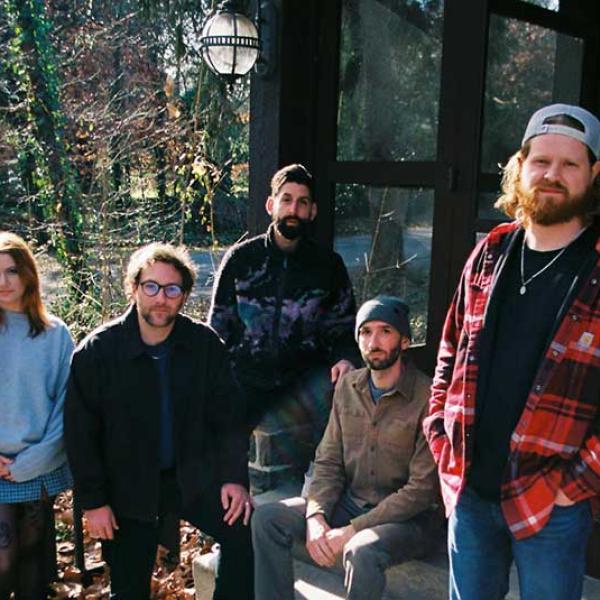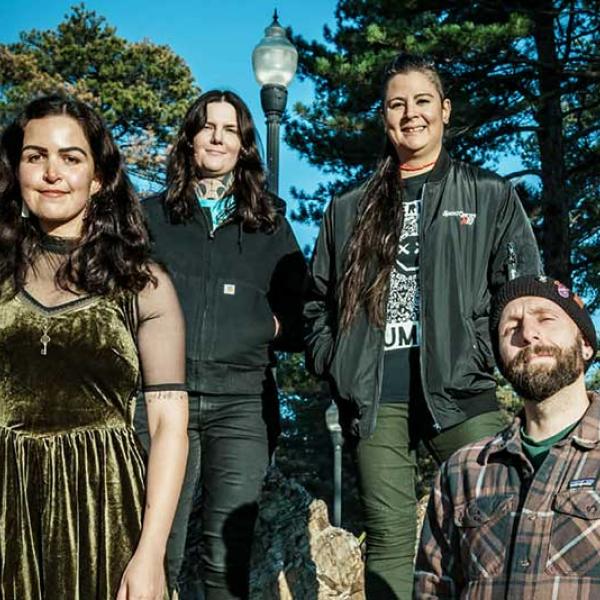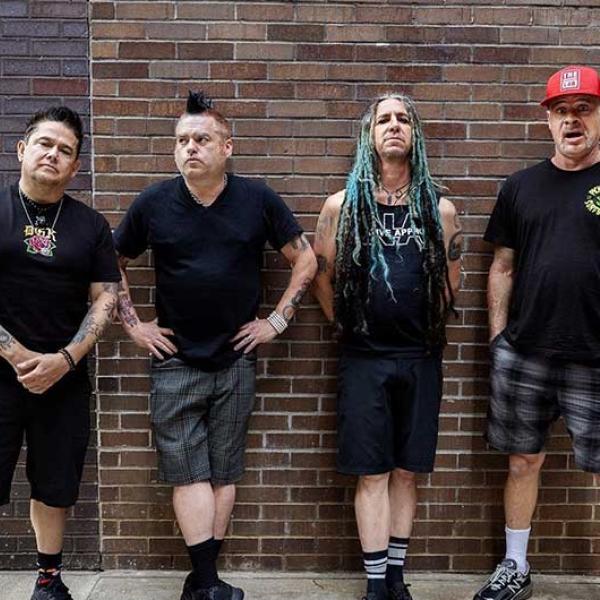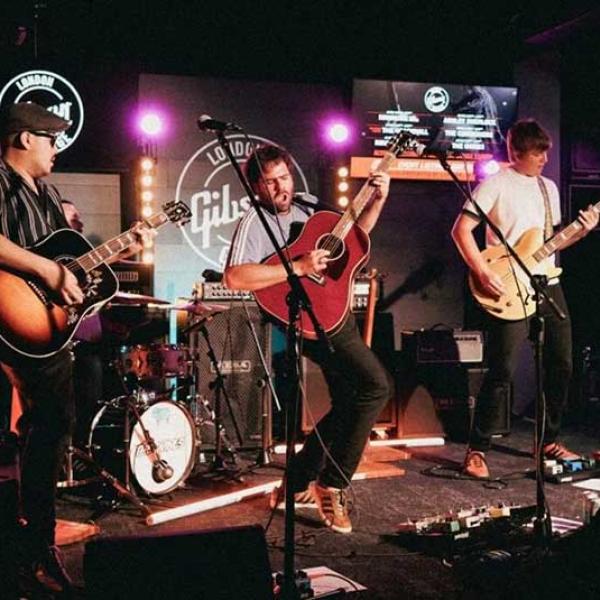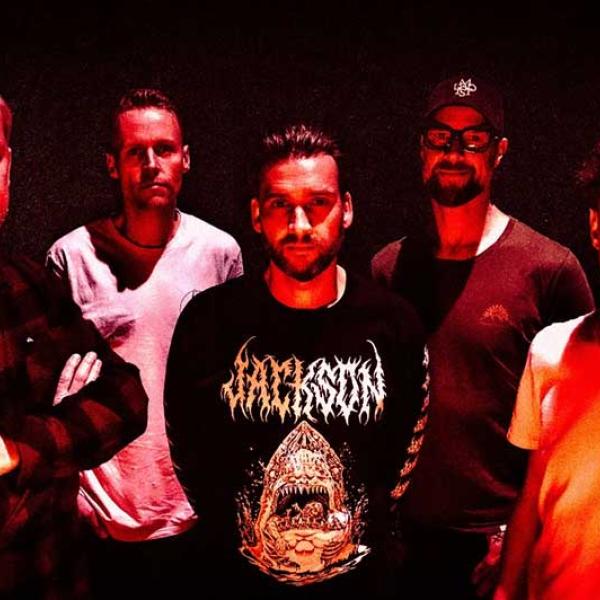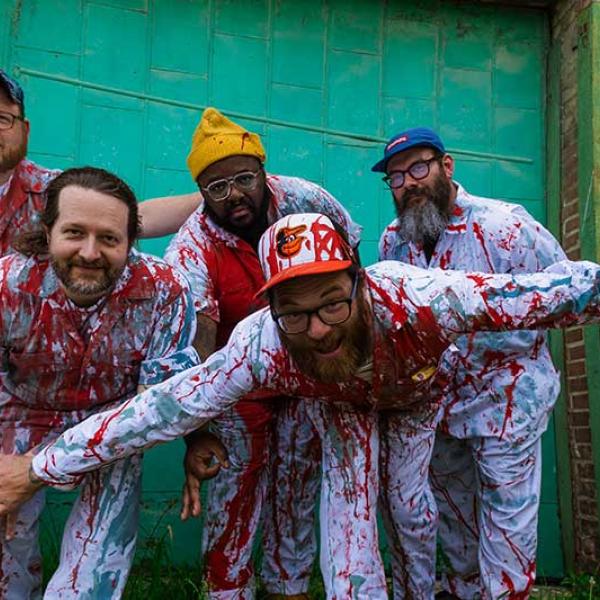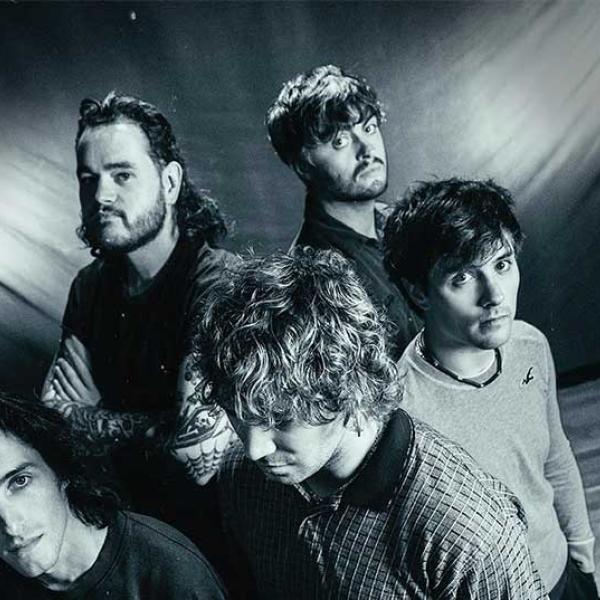Features
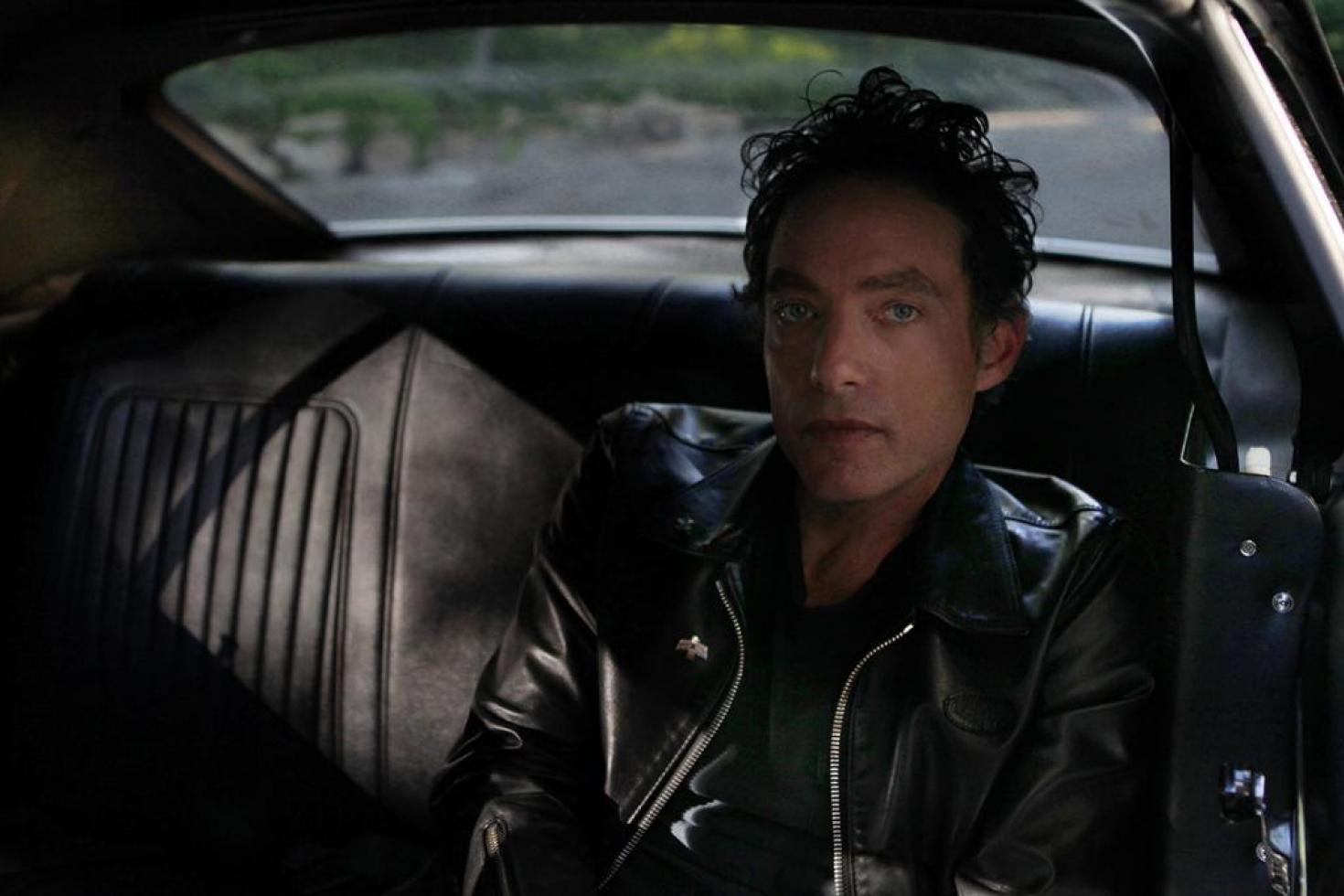
When ‘Bringing Down The Horse’ was released back in 1996, it launched the Wallfowers into the stratosphere with hit songs like ‘One Headlight’ and ‘6th Avenue & Heartache’. More excellent Wallflowers albums followed in the years after that along with solo albums that saw frontman Jakob Dylan exploring a more rootsy sound, before Dylan spent several years working on ‘Echo In The Canyon,’ a documentary that celebrated the music that came out of L.A.'s Laurel Canyon in the mid-60s. Following a show and an album where he interpreted some of his favorite songs from the era, it was finally time to go back to the Wallflowers. The result? ‘Exit Wounds,’ a 10-song collection that manages to harness all of Dylan's songwriting experience as it smoulders, flickers and burns bright, placing it right besides 'Bringing Down The Horse' as the Wallflowers' best body of work. (photo credit: Andrew Slater)
PRT: First of all, congratulations on the new album. I almost want to say comeback album, but apart from during the pandemic The Wallflowers have never really been away.
Jakob: Oh, not really. I mean, we've taken breaks. But I'm always working whether I'm making records or not. I'm always out touring and doing different things with The Wallflowers. So not much of a break really.
PRT: But it has been nine years since ‘Glad All Over’. Is that because ‘your heart wasn't in it no more’ to quote one of the songs from the new album?
Jakob: (laughs) Well, you can ask yourself that question any day of the week, no matter what year it is. But no, I didn't expect it to be that long. We made that record in 2012 and then we toured a lot. I also took some time out to make this documentary, ‘Echo in the Canyon’. We made a soundtrack to go with it and then we did a couple of shows for that as well.
I was finished with this record just as the pandemic was starting, so I guess we could have had it out about a year ago. But, yeah, time flies
PRT: You’ve said about the new album that the title refers to leaving people and things behind, which kind of has a negative feel to it. But you mentioned that that isn't necessarily true.
Jakob: No, it isn't meant to be negative. It's not just people and things you leave behind. It's anytime you make a move, when you transition to different parts of your life. It's the nature of it. You change and you take these wounds as you go and those are your lessons. That's how you become a stronger person. And when I say wounds, I'm assuming you survived. So when you get to the other end of things, time moves on and you're going to change. It's about change and transition.
PRT: Is this album dedicated to a specific change in your life?
Jakob: No, nothing specific. I mean, you can certainly apply it to these current times that we're all living through. Everybody's going to be different, if you're not already. If you were sleepy and you were complacent two years ago, I imagine you're not anymore. Everybody's had their lives turned upside down. It isn't a one specific moment for me, but I'm hyper aware that we are changing rapidly.
PRT: One thing I really like about the new album is how the songs move around between the sound that you have established with Wallflowers over the years. Was writing and recording the album fun? Because even though the album is called ‘Exit Wounds’, it definitely sounds like a fun album in a way.
Jakob: Yeah, I would say it was definitely more enjoyable than some records that I've made. When you start out making records, you feel like they're supposed to be very difficult and contentious. A lot of young people seem to think that if you're not having a difficult time making a record, then you aren't really working hard. But I think that's a great misunderstanding. I mean you can make great records in those circumstances, but you can make great records too with a joyful atmosphere. This was very, I wouldn't say easy to make, but the efforts were all on the same page. It was not contentious and I did have a better time than I have in the past making this record. It was not laborious and just kind of flowed naturally and easily.
The group of people I was working with were all on the same page from day one, and that's not always the case. Records are complicated when you've got five or six different personalities in a room. Everybody wants different things and there's going to be difficult moments. Sometimes that leads to great things and sometimes it just leads to… well, not good things. There’s people who claim that feuding in the studio is good for the record. That's garbage. It can be, but it's not necessarily true. And you can have a great time making a record that turns out terrible too. It doesn't go to the same way more than once usually.
PRT: Over the years, there have been some member changes in The Wallflowers. Does that tend to make things harder at first or does it feel like a breath of fresh air?
Jakob: Well, it feels like both. I think it's natural to want to carry on with a lot of the same people around you so you don't have to keep starting over with some things. But most relationships or friendships are not built to last. Bands are not built to last. Bands are really... They're for kids to be in. It's not natural to be in a group of four or five other people as an adult. It's just not. It's not a normal circumstance, but I always expected that. When I started this group, it was always changing members. It was always going to be my thing and I was always going to be the focal point and I designed it that way, really, since I think that really began with Bringing Down the Horse, the band's second record.
Ever since then, it's just been a rotating cast of people that serve me well and serve the music well. I'm not sure why other people didn't really pick up on that. I mean I'm asked now. It's a whole new lineup, but actually if you look at all these records, there has not been one lineup that made two records. It's never been R.E.M. It's never been U2.
PRT: The solo albums that you put out under your own name, how do those figure in then? Is that because it was stylistically different?
Jakob: Yeah, there's a difference. I can do whatever I want on solo records. I can make a jazz record, make blues records. But as The Wallflowers, there is something I started 30 years ago that's worthy of me tending to and evolving, but it really has a home base and it's built on something sturdy.
When I feel like doing that kind of music, that becomes The Wallflowers. If I wanted to do something that does not toe the line with what The Wallflowers have done, then I'll call it a solo record. But in some ways, they're interchangeable. I know that's confusing for people. What's the difference? I mean, Wallflowers records could be called solo records too, but The Wallflowers have a sound, a continuous sound, that I've had for 30 years. When I have those songs and I want to hear those electric guitars, that's the band I go to.
PRT: Speaking of The Wallflowers sound. I think my favorite song on the new album has to be ‘Dive Bar in My Heart’. Just the name alone. Can you tell me more about where that one came from?
Jakob: It’s this place you can go to after spending your whole day fighting off your thoughts and feelings because you got stuff to do. You can't afford yourself the time to absorb or wallow in these feelings that you might have. But there's a point in the day, usually at night, where you're allowed to let go of that and you're allowed to feel every bit of feeling you've got. That's something I feel like that's what people do in a dive bar. That's where you go when you want to be left alone and you want to just be who you are and receive and accept all the joys and pains that are in your life.
PRT: For the new album, you chose to work with Butch Walker, quite the songwriter himself. What kind of a dynamic does that create in a studio?
Jakob: Well, I've known Butch for a long time. I know him first and foremost as a singer-songwriter and a great entertainer. But he's also a well-known producer. It's my preference to work with people who do the same job as me. I've worked with all kinds of producers, and the ones who sit back and just listen and give advice, that just doesn't move me as much. There's good in that. But I find for myself, it's good to work with somebody who walks the same line. So when we're talking about a song, that person has experienced songwriting.
I'm not a gear head. I don't collect gear. I don't really want to know how to work a studio. I'm going to write songs and perform, so I need somebody who can take care of those things. I think Butch understood that pretty early on.
PRT: Someone else who has had an impact on the album is Shelby Lynne, who contributes to four songs. Are those kinds of collaborations something that make the songwriting more interesting for you?
Jakob: Well, no, I never go into a record thinking about those things, but Shelby was called in because Val McCallum, my guitar player on this record, he works with her and so her name came up. We had this song, ‘Darlin' Hold On,’ that we knew we wanted to do as a duet. She's been a favorite voice of mine for a long, long time. So we reached out to her and thankfully she was in town and was willing to come down. And then once she did come down, we just kept throwing songs at her because we're all having a good enough time that I'm not going to let her leave after an hour. She became somewhat of a member of the group, and herself and Butch and I have, I think, a really good vocal chemistry throughout the record. You don't need those kinds of things on records, but I'm open to it and it's organic and it sounds good, I don't over think it. I'm a huge fan and I'm glad to have her on the album. It moves me, and I hope it moves other people too.
PRT: This may be a weird question, but what do you still get out of writing songs after all these years?
Jakob: Well, you're never done. You finish a record and you did the best you could. You wrote the best songs you could have written. But then within just a few weeks or a few months, you start thinking of other songs. It's not always a pleasing place to be, having songs swirling around in your head all the time. It doesn't make you a nice person to be around a lot of the time. You're never done. It's never enough. When you're finished, you think you've written all you could, and then something nags you and you realize there's still a type of song you didn’t do yet or something you want to say that you haven’t addressed.
PRT: So you are constantly working on music? It's not that you sit down for a new album and...
Jakob: No, I go to work. I collect my ideas... inspiration for songs. You can't make that happen. But the hard work of turning that inspiration into something that you can call a song, that takes work. I'm not one of the people who says, "I wrote a song in 20 minutes." It takes me more time. But inspiration comes out of nowhere, and that's the frustrating part. You might hear it in a restaurant, you might hear it at a traffic light. When you hear a line, you think, "I can build a song on that," and then you're just going to become obsessed. That cycle never really ends.
But, no, I'm not someone who's constantly writing songs. I'm constantly keeping my ideas, doing small demos for myself and I really like to go in the studio. I don't think everything I write is great. I don't think everything I write deserves to be on a record, so I just collect them all. And then when it's time to make a record, I sort through them all and I figure out which ones could be put on a record.
PRT: Do you usually have one thing that comes first? Is it music first or lyrics first?
Jakob: No, it's never the same. The best ones come all at once, as everybody agrees. What can be really frustrating is when you get a set of lyrics and you don't have music. Words themselves, they have inherent melody in them. They have a cadence to them, so it's best when they come all at once. And when both the melody and the lyrics come all at once, that's the best. That's the simplest way to do it and the most rewarding.
PRT: Up until now, all Wallflowers albums have come out on major labels, but the new one is out on New West Records. How did you end up signing with them?
Jakob: Well, this is a different world. I wouldn't make a major label deal anymore. I don't think most of those labels are even working with bands anymore. I mean it's no secret that rock music doesn't produce numbers right now. There's just not enough benefit for those labels.
But also, my other record deals, they were typically four to seven records. I mean who wants to do that ever again? That was ridiculous. So now I just make a record and then you partner with somebody and you make a situation for an album. And if it goes well, maybe you'll make another one. But I don't think anybody should be locked into a five-record deal. I mean, are you kidding me?
I can't imagine we used to do that, but times were different. If you made a first record 20 years ago, no one expected that record to necessarily do very well. It was two or three records before you were successful. Record labels, they were your partners for a long time. That model just doesn't really exist anymore.
PRT: Is it a more comfortable situation to be in?
Jakob: Well, yeah, it really is. Here's what I got. Do you like it? Let's go do some work together.
Say it takes you a year or so to write a record and then you go on and make it. By the time you finish your record, the people who were excited to have you at the label, they're already gone. It's just a different beast than it once was. I can't say it's better or worse. You just have to accept that it's different.
PRT: Last year, ‘One Headlight’ was featured in the Judd Apatow movie ‘King of Staten Island’. Which made me wonder, was it fun to see that song pop up again? Or was it more like "oh god, not again"?
Jakob: No. I was asked permission obviously, and I know Judd Apatow. And there's no radio but you still want people to hear your music. Movies and TV are a good way to do it. And I liked the scene. It's a bunch of people hanging around a bar and everybody knows the song and they're mumbling through the lyrics. A song I wrote is joining a bunch of people in free spirit and they're singing along. I mean there's no songwriter that doesn't hope that happens. You want to believe that happens with your music, so it's flattering.
PRT: True. Do you still like that song? Or is it more of a love-hate relationship?
Jakob: Oh no, I still like that song plenty. I liked that song from the day we finished it. The day we recorded that song, I knew I had something that I thought was special. Usually you're wrong about that. Usually the things you like the most don't translate, no one ever noticed it. But that's the one record of mine where I can say that people agreed with the song I thought was the best.
With all of the other records I've finished, I'm always kind of surprised. The one song I thought was maybe my strongest, didn't get noticed. Actually… a good example: you mentioned ‘Dive Bar in My Heart’. Not a lot of people are mentioning that song to me, but I think that's the strongest song on this record. But at the same time, that's just how it's always been.
You also have to remember that when they released ‘Bringing Down The Horse,’ the label only had ‘6th Avenue Heartache’ as a single. The only reason they went to ‘One Headlight’ second was not because they were building up momentum. They thought that all they had was ‘6th Avenue Heartache’. So when they had some traction with that song and the radio was playing it and it was time to go to the second single, they were stumped at the time. It wasn't like we were holding ‘One Headlight’. In the discussions about what songs should be next to single, I was raising my hand, "We got to release ‘One Headlight’. That's the strongest song on the record," and we did. But when we recorded that record, nobody was looking at that song as being a single at all.
PRT: Wow, hard to imagine that looking back. You mentioned ‘Echo In The Canyon’ before. What was the most rewarding part of that whole project for you? Was it rediscovering the songs of that scene, doing the interviews for the documentary, recording the album or the show afterwards?
Jakob: I would say it's two things. One was getting to spend time with some of those people that I greatly admire. That was anybody's dream to be sitting with Brian Wilson or Tom Petty or Jackson Browne. You can't say enough about those experiences.
But secondly, I took the time to learn how to be more of an interpretive singer. Like most singer-songwriters, I spend most of my time singing my own songs and I will always sing my songs the best because that's how that works. But when I was singing those songs that are so well-known, I was not attached as a writer. I just got to actually look at my voice for maybe the first time as an instrument and I learned that I was maybe a better a singer than I was expecting because some of those songs are pretty daunting. When you have to face the microphone, it's a relief to know you might be more adept than you imagined.
PRT: When you're in the studio with Brian Wilson and you're singing one of his songs, or you're performing with Bruce Springsteen and doing one of his songs, it doesn't seem like you like to make things easy for yourself.
Jakob: (laughs) Yeah, you're right. Yeah. I dare someone else to have the guts to sing Brian Wilson next to Brian Wilson. I might get in over my head sometimes, but I believe I can do anything anybody else can do. Yes, those are giants, but when you get right down to it, we have the same job. Yes, it's daunting to sing his song next to him, but I also believe that we relate to one another because we have the same job. Bruce Springsteen has the same job as me, so when I get on stage with him, I'm another player. I'm a musician. Success doesn't matter on that stage. History doesn't matter on that stage. You're just two musicians playing and you're not competing. You're actually doing the opposite. You're hoisting each other up so each one can succeed because you're sharing a stage. Yeah, it takes some guts, but what else do you got? You're not going to not show up and sing with Bruce Springsteen because you're nervous, right?
PRT: Well, maybe I wouldn't.
Jakob: You know what? You might surprise yourself. I mean you might be better than you think.
PRT: You obviously haven't heard me sing! But about Echo in the Canyon… that place at that moment in time and all those artists influencing one another. It's kind of like the same thing that happened later in the '90s in Seattle or all the hardcore bands in Washington, D.C. in the '80s. Is that something you felt as well during some point in your career?
Jakob: No, I don't think I was ever part of a scene like that. I know exactly what you mean. I guess that just before I came up, they had something of a scene in Los Angeles with bands like Jane's Addiction and Red Hot Chili Peppers. I guess that was a scene. And before that you had X and the Blasters in the early '80s. But I don't know that they were defining in the way that Athens, Georgia or Seattle or Minneapolis had a moment. I think that's because everybody comes here. You know what I mean? I mean, you want to be in the movies, you want to be in a band, you go to L.A. or you go to New York. As opposed to something like Seattle. Before the big rush, those people were all from Seattle and it formed the music. I don't know if L.A. has that opportunity so much anymore.
PRT: One thing I noticed in the documentary is that it felt like you were doing your utmost best to not take up too much of the limelight. Was that a conscious decision?
Jakob: For sure. First of all, if you're sitting next to Eric Clapton, you're not going to take up much of the limelight. You might beg and fool yourself, but, no, these are giants. They had a story to tell and I wanted them to tell their story without interrupting them. A documentary doesn't really have a script. It kind of unfolds depending on what these people say and then you get redirected.
But yeah, I've heard before that I was awfully quiet in that documentary. But I would think that's the right thing to do. I don't think it required me being a host. The movie and the show we did are two different things. My time sitting with those people was really all about them.
PRT: One last question, if your sons would want to pursue a career in music, would you support them thinking it didn’t work out too badly for the last two generations of Dylans? Or would you gently try and steer them in a different direction?
Jakob: Well, the chances of you being successful are low. I wouldn't encourage anybody to go in the music business. It's going to be a rough ride and it's not for the weak. You're going to sacrifice everything for a dream and some dreams are not worth chasing. You can't be everything and do everything you want to do. So when somebody is young and they say, "Hey, you know what? I want to be in a band." I mean, your first thought is, "Well, we all to be in a band. Who doesn't? Who doesn't want to be in a band?".
I wasn't advised to go in the music business and I wouldn't advise anybody, my own kids, to go into the music business. Because very, very few people do succeed and have a long life doing it, that's just a fact. It's not about following your heart and your dreams. Who wants to be destitute and broke in 10 years? I don't think anybody does. What I'm saying here is you can have music be a great part of your life, that doesn't mean you have to go out and try and make a living doing it.
A parent's job is to have foresight for you sometimes and map it out for you and say, "Well, listen. Let's just figure this out. What kind of life is that going to be?". They got to have the information. It's not just about dreams. And if after I have given you all the information and you still decide, "Well, I hear that, but that's what I'm going to do," then yeah, I'm going to support you. Of course, I am.


